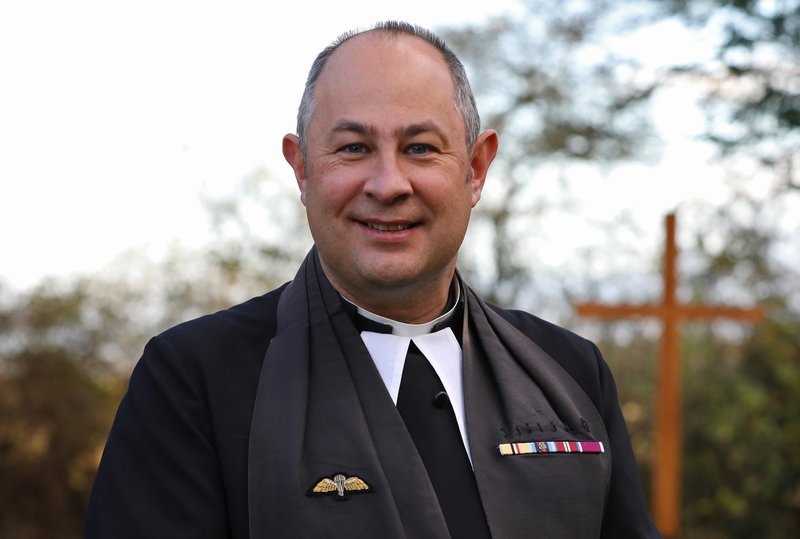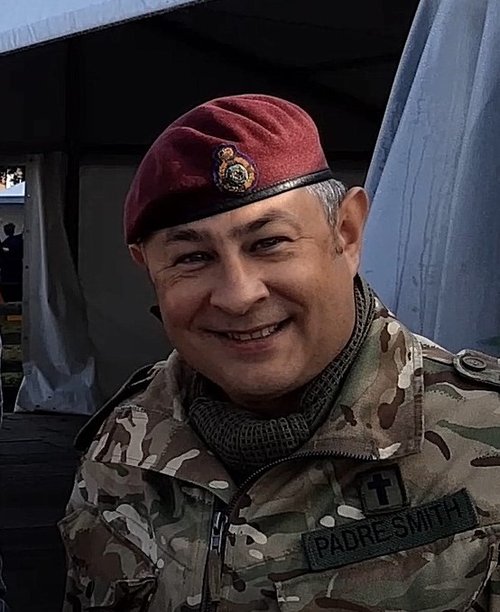A call to Army chaplaincy
10 December 2024
10 December 2024
Life as an Army chaplain is a calling like no other. Belonging to a remarkable organisation of young men and women, sharing your life with them and serving alongside them wherever they go brings opportunities and challenges. It is a vocation that is both demanding and rewarding and offers an adventurous journey of faith.
The British Army is looking for ministers to become chaplains. Here, The Revd Richard Smith CF, Methodist Minister and Assistant Chaplain General, shares a little of his experience and the skills required for the job.

Army chaplains, or padres as they are known, ‘care for the Army’s people’ through pastoral care, spiritual support and moral guidance. Wherever the soldiers go, their chaplain goes. Whether the unit is at home, on exercise, away in another country, or on operations, the chaplain accompanies them.
Chaplains are assigned to a specific unit of soldiers and care for them all, irrespective of individual religious belief.
Being an Army chaplain is a great privilege. The chaplains serve the Army and care for all those within it. In return, the soldiers look out for their chaplains. The distance between a religious professional and wider society that you find in civilian life is not present in the Army. The relationship is far closer. Soldiers think about life and death, they depend upon each other and their chaplain.

No day is ever the same. The soldiers are brilliant to work with, they are fun and, occasionally, a bit wild. Most of them range from 18-25 years old and so it’s a very youth orientated ministry.
Soldiers will come to their chaplain for guidance, advice and help. Often this requires the chaplain to advocate for the soldier to more powerful members of the military hierarchy, this is done with care, tact and integrity.
All soldiers will have a home barracks and that would be the normal place for the chaplain. But they are often away in the UK or elsewhere and so the chaplain is constantly mobile and flexible.
The emphasis is on spending time with the soldiers during the week and, whilst Sunday worship still has a place, it is not the main focus for most Army chaplains.
The chaplains also work in vibrant ecumenical and multi faith teams and celebrate the diversity they bring. This creates a task focused, broad team which reflects the nation as a whole and the personnel of the different Army units.
Being an Army chaplain for twenty years there have been so many moments I remember. Operations to Iraq and Afghanistan were highlights of chaplaincy ministry undertaken in extreme circumstances. In such places, the care for the soldiers is obvious and very necessary. Being able to be with them and support them through the most arduous of times were the most difficult, but the most important days of my ministry.
Army chaplains do not need to be ultra-fit or war-like but they do need to be tough enough not to be a burden on their troops. Army chaplains are not armed with weapons, the British Army chaplain is there to care for those in conflict, not to partake in it.
There are some conditions to being an Army chaplain:
Initial training acts like a transition course from civilian ministry into a military based one. Army Chaplains are trained initially at the Armed Forces Chaplaincy Centre, in the Defence Academy, Shrivenham and also at the Royal Military Academy Sandhurst where they complete a short commissioning course alongside the reservist officers. Training continues through a chaplain’s career with specific courses and ongoing continual development and ministerial education.
Find out more about the vocation of an Army Chaplain on the Army’s website: https://www.army.mod.uk/who-we-are/corps-regiments-and-units/royal-army-chaplains-department/